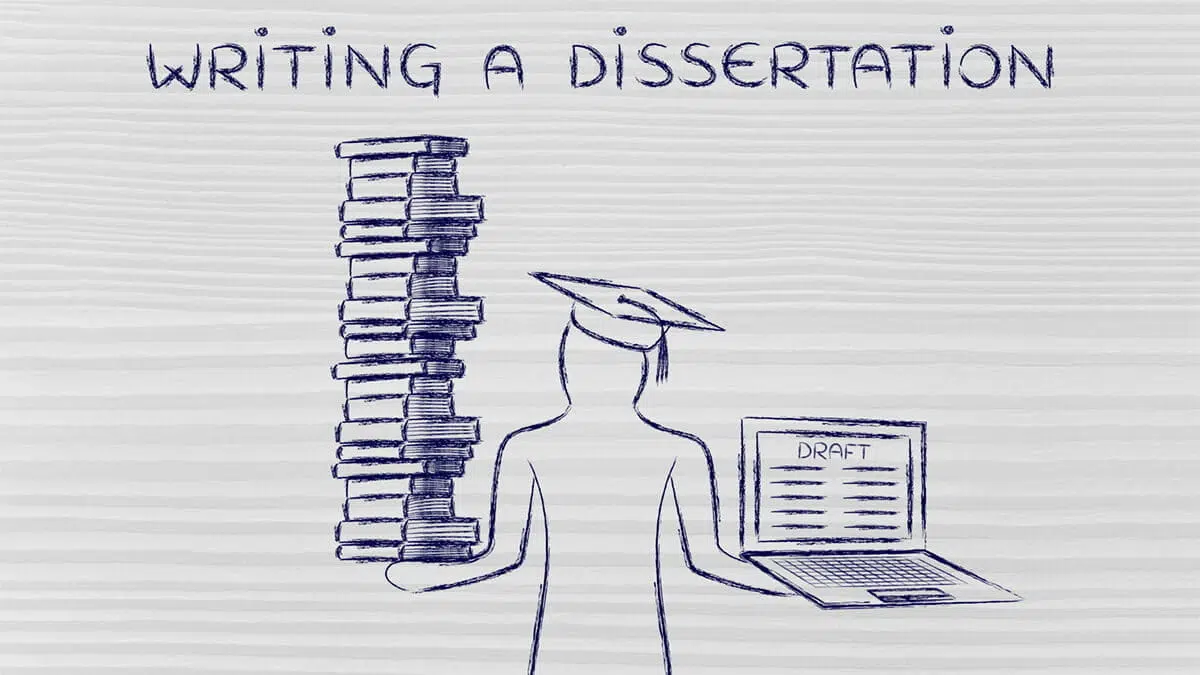
Before you start writing your final dissertation, you have to submit a dissertation proposal, which serves as the roadmap as you summarise what, who, why, where, and when aspects of your overall dissertation in it.
A dissertation proposal is important to craft as it makes up the foundation of your entire dissertation and signals what it will look like.
However, students make mistakes in their dissertation proposals, which leads to delays in their submission and even rejections.
So, if you are a student who will write a dissertation proposal in the future years then look no further. In this blog, I will discuss common mistakes in the dissertation proposal and how to avoid them.
What is a dissertation proposal?
A dissertation proposal is like an outline and a summary of your entire dissertation. Moreover, it shows what you will explore in your dissertation, how you will collect and analyse data.
However, you don’t need to stress out at this stage because the case is not that you won’t be able to make changes later. After crafting your proposal, if you identify any lacking, you can obviously change them before writing your final dissertation.
Your dissertation proposal addresses:
- The significance of your dissertation.
- Existing literature on your topic.
- The setting and time of your research.
- A sample from which you will collect data.
- The tools of analysis and collection of the data.
What are the basic elements of a dissertation proposal?
- An introduction to your dissertation topic
- Aims and objectives of your dissertation
- A literature review of your topic
- Proposed methodology
- Implications of your dissertation
- Limitations of your dissertation
- Bibliography
Typical errors students make while crafting a dissertation proposal and how to avoid them?
1. Unclear research objectives:
One of the most common mistakes students make is writing an unclear research objective. Moreover, it is a serious error because a research objective directs the focus and serves as the backbone of your entire dissertation.
Also, if your proposal doesn’t have a strong, focused, and specific research objective, then your dissertation will lose its credibility and direction.
How to avoid it?
- Avoid writing many research objectives; instead, write one, but it should be focused and specific.
- Align your research objective with your research question.
2. A broad research topic:
Many students also make the mistake of choosing a topic that is too broad. The issue is that a broad topic has various aspects related to it. However, it is not possible to cover everything in just one dissertation, and you also get confused about what to add and what not to add.
Moreover, your dissertation just loses its credibility and focus. However, you can contact the dissertation proposal help UK if you need assistance while narrowing down your topic.
How to avoid it?
- When choosing your dissertation topic, you need to narrow your focus and choose quality over quantity when refining your research topic.
- Also, choose a topic that has a more manageable scope.
3. Not justifying the proposed methodology:
When you state your methodology, you justify it by referencing existing research works and highlighting why you are using this methodology when you could use another methodology too.
When you don’t justify your choice of methodology, your research loses its validity.
Also, without a rationale, how will your advisors and professors know the importance of it? They will think that the methodology is inefficient to address your research question.
How to avoid it?
- Justify all your research methods.
- Also, justify data collection and analysis methods.
- Provide a rationale for any frameworks you have added.
4. A weak theoretical foundation:
For selecting a topic, you have to go through existing research and have to identify a gap in the literature, i.e, a research area that hasn’t been researched enough or lacks research on a specific sample or context.
However, to show that your topic has emerged from identifying gaps in existing literature, you need to have a strong theoretical foundation.
So, you need to summarize the existing research and identify a gap in it. Moreover, reviewing literature extensively is not required at the proposal stage. However, you just need to justify your research topic and objectives by showing why there is a need for you to research this topic.
How to avoid it?
- Go through literature from multiple, recent, and high-quality sources and identify a gap in it.
5. Weak problem statement and research questions:
Problem statements and research questions define the aim and the focus of your dissertation. If the problem statement and questions are too broad, unspecific, and weak, then your entire dissertation will be affected.
Moreover, it will affect the overall steps and direction of your dissertation.
How to avoid it?
- Specifically state the problem your research will address.
- Also, craft a specific research question.
6. Poor writing and unclear presentation:
Even if your dissertation proposal has strong content but if you have not presented and crafted it well, it will affect the overall impression of your work.
For example, your dissertation proposal has:
- Lack of direction and messy writing: writing that jumps from one point to another with no connection, flow, or coherence.
2 . Poor arguments: lack of strong arguments and reasoning.
- Inappropriate language: using a very informal or casual tone, slang, etc
4 . Grammar and spelling issues
5 . Referencing errors: for example, a lack of references or incorrectly formatted references.
6 . Table and figure captions: for example, a lack of captions, citations, figure and table numbers, etc.
- Low-quality visuals and diagrams.
How to avoid it?
- Take into account coherence, logical flow, and connection between the ideas.
- Cite every claim you make in your proposal.
- Reference correctly.
- Avoid spelling and grammar issues.
- Add captions, figures, and table numbers.
- Include high-quality visuals.
Final thoughts
Crafting a strong dissertation proposal is crucial, yet common mistakes like a broad topic, unclear objectives, and poor methodology justification often undermine it. To avoid these pitfalls and strengthen your theoretical foundation and problem statement, seeking expert UK Dissertation Help can be invaluable for ensuring a successful start.
Furthermore, to do well in your dissertation project, you need to avoid all these mistakes. Also, you must not ignore the feedback from your advisors, as they are aware of the department’s standards and requirements, so they provide effective feedback that must be applied at all costs.







4wk54u